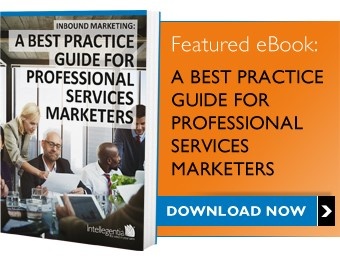Since the Legal Services Act, October 2011 the UK legal services market has undergone substantial changes. The aim of the Act was to simplify the process of purchasing legal services (hence the act being referred to as “the Tesco law”) and in doing so, the Act broke down many barriers.
Today we see law firms offering other services as diverse as Schillings branching out into cyber-security and Wiggin (known for media work) branched out and purchased an on-demand television service. There are new entrants to the market from overseas and a raft of mergers and acquisitions have taken place in recent years.
We’ve also observed that law firms are reviewing not only what they do, but how they go about it too. This is particularly true for marketing legal services.
Living off retained clients and referrals is getting harder.
New generation of customers
In today’s marketing world, new rapidly-evolving technologies, social media and a never-ending supply of online information has created a new generation of information hungry, digitally-savvy customers.
As a result, people are increasingly using websites, search engines and social media channels to conduct most, if not all, of their research, as opposed to picking up the phone or talking to people face-to-face.
And that applies across all purchases, whether those people have their “consumer” hat on or their “business” hat. It is estimated that people generally conduct at least 60% of their research before they speak to potential suppliers.
According to a national survey carried out by Moses & Booth:
- Survey participants ages 18 to 24 years-old were more likely to search the internet to find a lawyer. In fact, 17.8% of survey participants in this age category said they had retained a lawyer via the web compared to only 12.1% who indicated they had chosen a lawyer based on a friend’s recommendation.
- Survey participants earning more than $150,000 per year were more likely to choose a lawyer based on an internet search, than via a friend.
In other words, the up-and-coming young and wealthy demographic, according to Moses & Booth’s survey are increasingly likely to turn to the internet to find legal support.
It’s not just happening in America either! These findings are supported by the Competition and Markets Authority’s (CMA) recent year-long study into the legal services sector, which revealed, among other things, that today’s legal services consumers need better information about the different options that are available to them. The CMA found that competition within the sector for consumers and small businesses isn’t working well and that as a result, many people looking for legal services find it difficult to find a service that’s right for them and offers value. (For further details, check out our blog, ‘Marketing of legal services – CMA demands more transparency.’)
The key, of course, is to be found by the right people – people who are actively searching for the services you can provide.
Did you know, for example that there are currently 720 internet searches per month specifically looking for solicitors in Manchester? And 90 searches per month for Bristol divorce solicitors!
Can you guarantee this new breed of customers will find you if they’re looking for the services you provide online? Or will they find your competitors first?
Inbound Marketing – getting found online

Contrary to popular belief, inbound marketing isn’t just another buzz phrase of the moment, it’s the fuel for Search Engine Optimisation (SEO). It’s what makes you stand out from your competitors, generate new leads, convert prospects into customers and customers into loyal brand advocates.
In a nutshell, making sure your blog and website provides the content that people are looking for helps to improve the ability to be found when people search on the key words that you are using.
Examining your buyers and researching the keywords they use to search for information is fundamental to inbound marketing. Getting it right is what gets you higher up the rankings than your competitors.
Inbound Marketing overcomes issues with Data Protection
For many service lines, clients are treated as consumers as far as Data Protection goes, and therefore you need prior permission to send marketing emails and newsletters to them. Buying a list of potential clients is out of the question.
Inbound marketing overcomes that issue in a very smart, legitimate way!
In exchange for making valuable information available, you invite people to provide their details and opt in to receive further marketing materials from you.
Inbound Marketing – a new approach to lead generation
These days, companies of all sizes across most sectors are increasingly tuning into the power of inbound marketing to generate sustained new business and get the best return on investment their marketing investment.
In general, law firms have adopted a cautious approach to internet marketing. Perhaps that’s why a survey of over 100 UK law firms in 2013 found that whilst over half of respondents had won direct business from social media engagement, less than a quarter had an integrated social media strategy in place. We’ve seen that is changing, with more law firms embracing new marketing technology and (like you) keen to hear how it could positively impact your business.
So, whilst compliance and other regulations can feel like a barrier to marketing, inbound marketing provides a really interesting way of thinking about marketing and lead generation. It’s about educating and informing, and about client retention. It’s not about overt selling. It IS about generating new business opportunities.
Are you ready to start being found by the right people by harnessing the power of inbound marketing? Our free ebook, ‘Inbound marketing: A best practice guide for Professional Services marketers’ shows you how. Packed with practical tips and advice, this guide explores the ins and outs of inbound marketing, and best practice guidance for blogging, email marketing, social media and more.
.png?width=250&height=76&name=Intellegentia%20Logo%20(MAIN).png)
